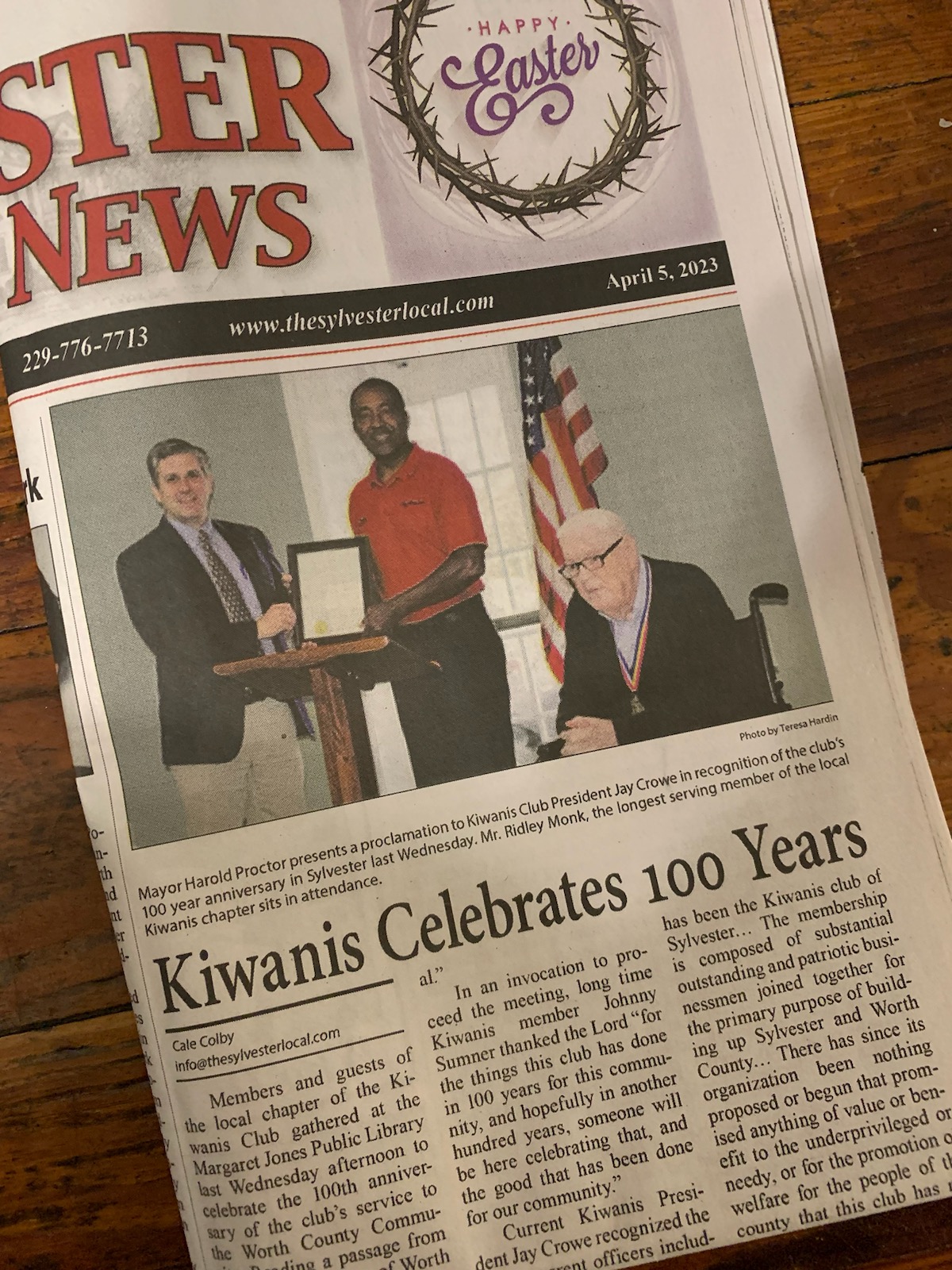By: Virginia Acord, Worth County Probate Court Judge
The Department of Human Services spoke at our probate judge training on the increase of abuse of our at-risk adults (adults 65+ and adults 18+ with any disability) that are victimized financially and/or physically. Abuse of older and disabled adults (at-risk adults) is one of the most undetected and under reported problems in the U.S. and has compelled me to submit this article.
As judge, I have witnessed cases where at-risk adults are victimized by both relatives and non-relatives by neglect, physical abuse and through their finances. Many times this is done by legal means, especially through a general power of attorney. This document allows the person executing the power of attorney to appoint another to engage in property transactions on their behalf. These transactions can include using the person’s financial accounts and transferring real property. It is important that powers of attorney are only give to people fully known and trusted.
Exploiters of at-risk adults include the career criminal, a fiduciary, a care giver and family members. The fiduciary could be a conservator, doctor, accountant, attorney, executor or trustee. Common patterns which exploiters utilize to achieve their goal of abusing the elderly include the use of the following:
Isolation: Exploiters use isolation to control all forms of communication to and from an at-risk person. When friends and family call, they are invariably told by the exploiter that the person is sleeping, ill, indisposed, at the doctor, or some other excuse. When friends attempt to see them, they are turned away by the exploiter at the door. The at-risk adult is often persuaded into changing from long trusted family lawyers, physicians, accountants or other professionals to the exploiter’s associates.
The Siege Mentality: Exploiters attempt to convince their victims that only they can protect them from outside hostile forces. At the same time, the exploiter tries to convince the at risk adult that former friends and family members are no longer interested in them or that they have become hostile, uncaring, or are only interested in the at-risk person’s money. If the at-risk adult is mentally alert, then the exploiter may cause them to be injured to the extent that they become physically dependent upon the exploiter. The exploiter may also administer incorrect medication to further diminish the victim’s mental disabilities.
Staying Unaware: The exploiter has created a false world for the at-risk adult built with lies and upon the victim’s fears so that they have a false sense of reality of what is happening around them. They may be convinced by the exploiter that family members are alcoholics or drug addicts and are therefore unworthy of inheritance or trust.
Sense of Powerlessness: In this situation, the at-risk adult loses confidence in dealing with their needs and in managing their own affairs. At the same time, the exploiter will work to further destabilize their mental status by disrupting normal medication, food and care-giving. These strategies reinforce the at-risk person’s dependency on the exploiter.
Dependency: Here the at-risk adult becomes totally dependent upon the exploiter for day to day care, including food, companionship, information and medical attention. Ultimately, the at-risk adult loses their sense of being an independent functioning person, instead becoming one that must be totally dependent upon the exploiter.
Sense of Fear and Vulnerability: As dependency increases, the at-risk adults becomes more fearful and vulnerable. The world created by the exploiter is hostile and the elderly person no longer has long term friends, professional advisors or family to provide support for them. The exploiter uses these techniques to bond with their victim so that they only see what their exploiter wants them to see and they perceive others, and not the exploiter, as the enemy.
These are only a few examples of how at-risk adults may be coerced in giving up their rights and freedoms but if you believe that an at-risk adult is being either physically or financially abused, the appropriate action is to contact both your local law enforcement and Adult Protective Services. APS is a division of Aging Services with the Georgia Department of Human Services. APS has a toll-free number (1-888-774-0152).
Once contacted, APS will send a caseworker to investigate the allegations. If they believe further action is necessary, they will attempt to contact trustworthy friends or family members to provide a safe haven and possibly assist them with filing for guardianship and conservatorship of the at-risk adult.
In exceptional cases where the at-risk adult has no close family or friends, APS can petition to become the at-risk adult’s guardian and conservator themselves. APS may also obtain consent for the for the at-risk adult to be placed in institutional care, such as a nursing home, and even refer the case to the appropriate authorities for possible criminal action against the exploiter.
Sheriff Hobby and I are committed in eradicating abuse with at-risk adults in Worth County by hosting a free two day training on May 19-20, 2015 for law enforcement, prosecutors, judges, EMS, social service agencies and coroners to equip them with knowledge and skills to address the needs of these at-risk adult crime victims.
All law enforcement, EMS employees and prosecuting attorneys that attend the full two day seminar will receive the following credits: 16 hours of POST credits for law enforcement, 16 hours EMS credit and 12 hours of CLE credit for prosecuting attorneys.
For more information about the class contact David Blake at dfblake@dhr.state.ga.us or to register on-line, visit the Forensic Special Investigations Unit website: http://aging.dhs.georgia.gov/foresnic-special-investigations-unit-fsiu.






